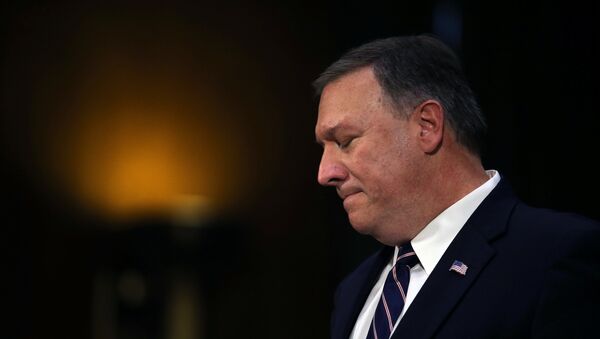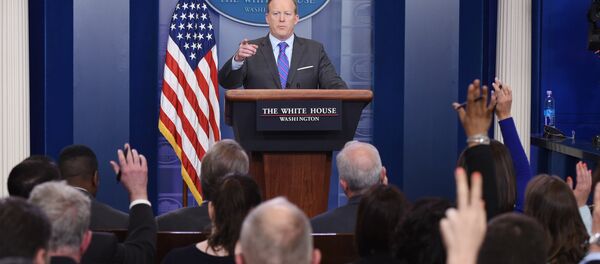MOSCOW (Sputnik) — He referred to "something called the Gerasimov doctrine," which, according to Pompeo, was developed by Russia's Chief of the General Staff Valery Gerasimov in early 1970s.
“His idea was that you can win wars without firing a single shot, with firing a very few shots in ways that are decidedly not militaristic. And that’s what happened. What changes is the cost which effectuates change through cyber and through RT and Sputnik, the news outlets and through other soft means has just really been lowered. It used to be expensive to run an ad on the television station. Now you simply go online and propagate your message, so they have found an effective tool, an easy way to go reach into our system, into our culture to achieve the outcome they are looking for," Pompeo said at the Aspen Security Forum.
Russian media outlets broadcasting in Europe and the United States have been facing a barrage of accusations by Western officials about allegedly spreading fake news and attempting to influence public life.
In November 2016, the European Parliament voted in favor of a resolution, which said that Sputnik and RT posed a danger to Europe's unity and called for extra European Commission funding for counter-propaganda projects. It also drew a parallel between the Russian media and the propaganda disseminated by Daesh, a terrorist group outlawed in Russia and numerous other states.



